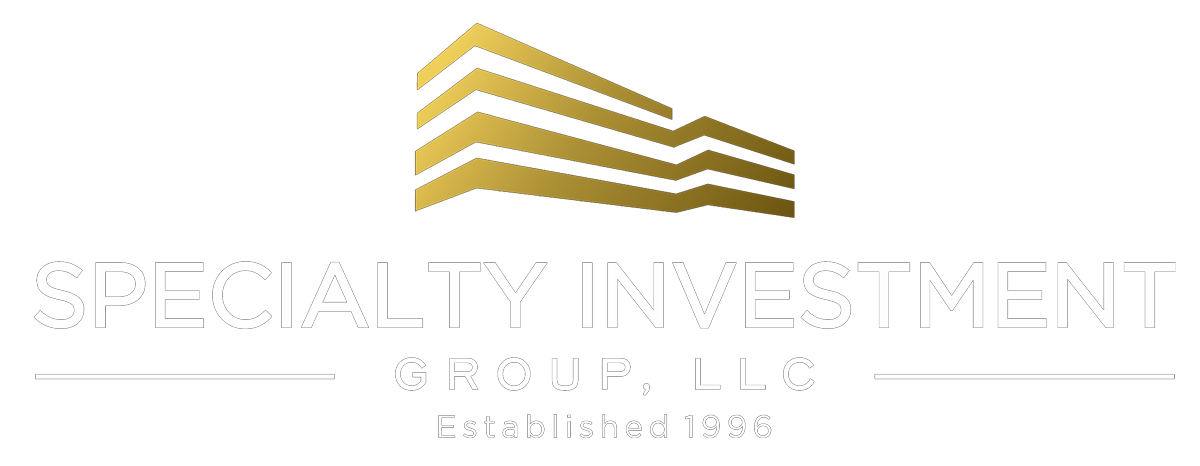Owning real estate is a well known path to financial security. Moving from renting to owning a home is the first step towards growing wealth through real estate. We all must pay for a roof over our heads, and the many benefits of real estate ownership flow through our home and are amplified as we invest in other real estate. Many believe that you purchase something and wait, and eventually it will go up in value. Every family has the rich uncle who bought a bunch of houses back when everything was cheap and now does not have work. Appreciation is just one of many ways that owning real estate will earn you money.
Appreciation
Real Estate values reliably increase over time and rarely go down. Unlike the stock market, real estate values are almost universally increasing. The 2008 housing crisis is one of the very few times that real estate values retreated. Typically, during a recession home prices level out but rarely retreat. But as any home shopper knows, the price of housing has increased over time. While every community experiences its own local real estate market, prices overall in the United States have steadily risen. According to Zillow, in 1996, the average price of a home was $106,000, and today that same home is priced at $266,000. This represents an increase of 6.1% average annual return, well ahead of inflation which averaged 2.8%[1] for the same period. This even through the only modern recession where home prices retreated for a relatively short period of time.
Looking at just organic appreciation, it would appear that other investments such as the stock market have generated higher returns. However, real estate earns value in many ways beyond just value appreciation.
Forced Appreciation
A buy and hold strategy of real estate investing is a sound method of increasing your net worth over time relying on organic appreciation. However, as many popular real estate TV shows have shown us, we can markedly increase the value of a real estate by improving it. Finding a Fixer Upper is all the rage, and in fact is great strategy utilizing real estate to increase your wealth. By taking a property and increasing its usefulness and/or desirability, you can increase the market value beyond the cost of completing the repairs. In essence you are creating, or “forcing” the appreciation of the value of the property. With a fix and flip strategy, investors are focused on the market value of the home when they sell it. With a fix and hold strategy, the goal is to increase the cash flow from rental income, which too affects the market value of the property.
Cash Flow
Many types of real estate investments generate revenue through rental income. This is a primary goal of many real estate investors, where they invest their cash into a property and then collect rent from the tenants in an amount sufficient to pay all the expenses, including mortgage payments, with enough excess to generate monthly income. Investors measure the value of this income stream as a return on the cash invested in the property, termed the Cash on Cash Return. Many investments generate a 6% to 12% Cash on Cash return, providing the investor passive income, often termed as “mailbox money”. While owning real estate is not without its own work, there are many ways to mitigate the amount of work an individual investor must engage in by hiring a property manager or investing as a limited partner in a real estate syndication.
Leverage
Investing your own money into an investment vehicle is designed to earn you a return on those invested dollars. Unlike investing in the stock market, it is a common and encouraged strategy to leverage your cash with the use of borrowed funds to increase the amount of the total investment. This is one of the big advantages investing in real estate has over other traditional investments. If you invest $50,000 in the stock market, you have that $50,000 going up in value. But when purchasing real estate, you can leverage that same $50,000 with borrowed funds into a $250,000 property. You control and benefit from the larger asset’s appreciation in value.
Why are banks willing to lend on real estate much more freely than lend money to invest in the stock market? Because real estate is real. It is a tangible physical useful object, with durable value, whereas the value of stocks is impacted by the whim of wall street sentiments.
Using our example, if you had made two investments of $50,000 each in 1996, one in the S&P 500 and another in real estate, the stock market would have earned you $256,651[2] and the real estate would have earned $377,358 from appreciation only.
Once you add in the income from cash flow, the ability to force appreciation, and the tax benefits discussed below, the real estate investment using leverage far exceeds the performance of investing in the stock market.
Tax Savings
A dollar not sent to the government in taxes is a dollar earned. The government has relatively few tools to direct investment capital to meet their objectives when creating programs to benefit society and local communities. The tax code is designed to influence behavior. Investing in ways encouraged by the tax code is simply acting patriotic. There are numerous tax incentives for real estate investors which reduce tax on income and capital gains. These include offsetting income through depreciation, increasing depreciation using cost segregation and bonus depreciation, deferring capital gains taxes by conducting a 1031 exchange, investing capital gains in qualified opportunity zone investments and more. Learn more here. (link to Tax Benefits article.) These tax benefits can offset the income from cash flow during the hold period of the investment, increasing the value of that cash flow significantly. If you can earn monthly income from positive cash flow and not pay 25% to 37% of it in taxes to the government, that increases the return on investment even further. Please see your tax advisor for details.
Principal Reduction
Part of the rent income generated from a real estate investment goes towards the mortgage payment. The interest paid in each payment is an expense to the business, and together with the other expenses, reduces the Net Operating Income of the property. The amount of the payment that goes towards the loan principal, is not an expense, but is instead booked as a decrease in a long-term liability (the bank loan) on the balance sheet. As the loan decreases, the equity in the property increases. Essentially, a portion of the rent paid by the tenants goes towards paying down the debt on the property, thereby increasing the net value of the investment.
Inflation
Owning real estate is a hedge against inflation. As discussed earlier, historically real estate values have outpaced inflation, thereby avoiding the devaluation of wealth by holding an asset instead of cash.
Inflation further decreases the real value of the mortgage balance over time. As inflation makes dollars cheaper, so too it makes debt cheaper. If a property was purchased in ten years ago, and as in our example, using a loan of $200,000 with an interest rate of 4.5%, the amortized payment reduced the mortgage balance of $145,060. However, when adjusted for inflation, the value of the remaining balance in 10 year old dollars is only $122,124.[3]
Inflation also causes rents to go up. Over time rents in any particular area change over time, influenced by many local economic factors. Population and job growth are primary drivers, as a local community thrives, people are attracted to the area, increasing the need for housing (demand), resulting in rental increases. As developers complete new apartment buildings, thereby increasing the supply available to renters, rent growth can be slowed, though new construction buildings are typically at the top of the range of rents, and more modest apartments see less impact on the rental rates for Class B and C buildings.
In addition to increasing the Cash on Cash returns, rising rents increases the Net Operating Income, which thereby increases the market value of the investment.
Proven Investment
Over the ages owning real estate has demonstrated itself as one of the most reliable wealth generators. Over time the value of real estate goes up, yet by adding all the methods that owning real estate adds value, there are few other investment vehicles that are easily understood and provide consistent results.
By passively investing as a limited partner in real estate syndications of apartment buildings, investors can get all the benefits described above, with little to no responsibilities for the day to day management of the property itself.
Reach out to us today to learn how you can participate in upcoming investment opportunities.
[1] U.S. Bureau of Labor Statistics CPI Inflation Calculator
[2] DQYDJ. “S&P 500 Return Calculator, with Dividend Reinvestment,” Accessed Feb 26, 2021.
[3] U.S. Bureau of Labor Statistics CPI for All Urban Consumers 1982-84=100 1996-2021

